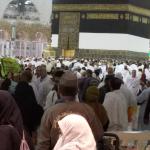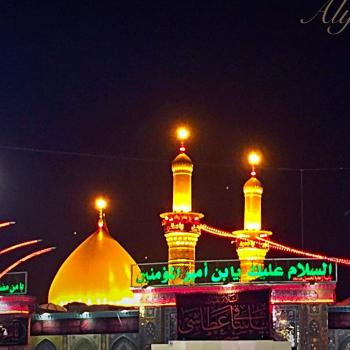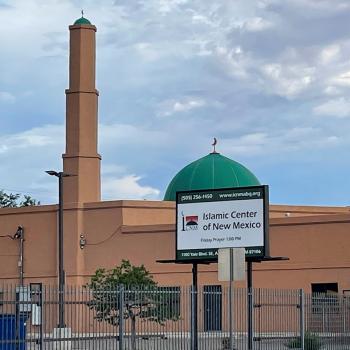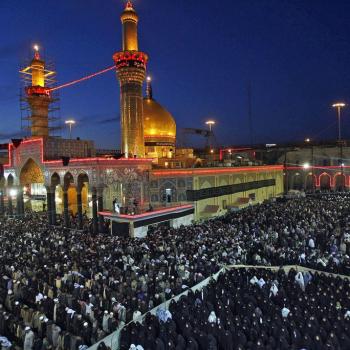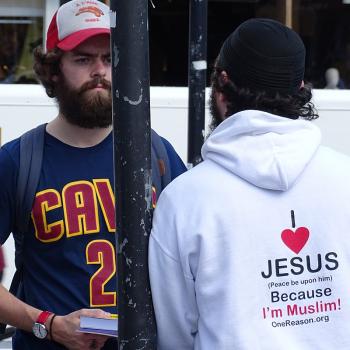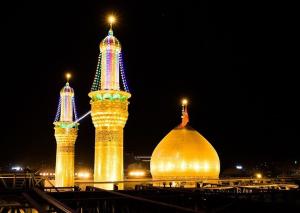 I have been working to promote interfaith dialogue for many years, as there is a great need for people from various faith traditions to get to know each other. This has never been more relevant (at least in our lifetime) given the current socio-political climate.
I have been working to promote interfaith dialogue for many years, as there is a great need for people from various faith traditions to get to know each other. This has never been more relevant (at least in our lifetime) given the current socio-political climate.
But what about Intra-faith dialogue among Muslims?
There seems to be near-complete lack of such dialogue, though there is clearly a need for one. Muharram is the perfect time to start one.
The Muslim world seems to be ever more divided between various sects. The tension between Sunnis and Shias across the globe is exemplified by the civil war in Syria, Bahrain, Yemen, and the Shia genocide (though no one seems to be willing to call it out) in many parts of the world, including Pakistan.
Growing up in Pakistan, practically all my friends were Sunni. My close-knit group of about seven friends did everything together- we studied together, ate together, went to the movies together, chased girls together (yes, that was then). But when the month of Muharram arrived, we somehow felt “different” and went separate ways — I was busy attending Muharram speeches in Shia Mosques and listened to other programs on TV and radio. (Kids, believe me, there was life before the Internet.)
My beloved Sunni friends did none of that. In fact we did not even talk much about our activities around that time. It was as if we became strangers to each other.
Right after Ashura (the tenth day of Muharram), we became like old pals again.
It bothered me then, and it still bothers me as to why we have to live separate lives in Muharram — even here in the United States, my adopted home for the past 33 years.
It is not the physical separation that bothers me. It is the mental aspect and how we seem to look at the events of Muharram and the tragedy of Karbala so differently. My Shia friends deeply mourn the loss of Imam Hussein, the grandson of Prophet Muhammad PBUH and his family and companions. Many stop all celebrations — birthdays, weddings and parties. My Sunni brothers and sisters on the other hand, though acknowledging and respecting Imam Hussein’s sacrifice, seem indifferent.
I see “Happy New Year” greetings all over and many parties and “fun events” taking place. The Friday khutbas and other religious programs almost never mention the tragedy of Karbala. Life goes on “normally.”
I also note that many, if not all, of Shia gatherings to commemorate tragedy of Karbala are Shia-only gatherings. Sunnis are almost never “invited.”
All of this makes me wonder, and I find myself asking these questions.
Did Imam Hussein sacrifice his life and the lives of his noble family (the family of Prophet Muhammad) for “Shias” only? (More on using the Shias under quotes later).
Many even ask if he sacrificed for Muslims only? A video clip from a Christian theologist, Dr.Chris Hewer of the Center for the Study of Islam and Christian-Muslim Relations in Selly Oak, Birmingham, UK sheds light on this subject, calling it a lesson for all of humanity.
Is commemoration of the tragedy of Karbala a lesson for Shias only?
Why do the Shia gatherings not include Sunni brothers and sisters? Do the Shias have the monopoly on Imam Hussein, or the commemoration?
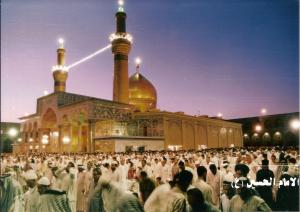
Along the same lines, I find myself asking questions pertaining to the social and political aspects of the Shia-Sunni divide:
Is Islamophobia limited to Shia Islam or Sunni Islam only?
When you are stopped at the airport security for “special treatment”, is that because you are a Shia or a Sunni Muslim?
When Hijabi Muslim women are targeted for hate crimes, is that because they are Shia women or Sunni women?
When the Muslim children are bullied at school, is that because they are Shia children or Sunni children?
When the Rohingya Muslims become victims of a genocide, are they victimized because they are Sunni Rohingyas or Shia Rohingyas?
We should be united by our faith alone. We have more in common than any other religious groups.
We are united by our faith and love for one God.
We are united by our faith and love for the Holy Quran.
We are united by the love for Salah and Ka’aba.
We are united by our faith and love for Prophet Muhammad and his Sunnah.
The Quran’s call to Unity:
“And hold fast, all together, by the rope which Allah (stretches out for you), and be not divided among yourselves; and remember with gratitude Allah’s favour on you; for you were enemies and He joined your hearts in love, so that by His Grace, you became brethren…” 3:103
If the call to “be not divided” in the prior verse was not enough, the same commandment is repeated a couple of verses later.
“And be not like those who became divided and disagreed after clear arguments had come to them…” 3:105
The terms “Shias” and Sunnis” are misnomers.
“Sunni” refers to someone who follows the Sunnah of Prophet Muhammad. Shia refers to those who love Ali, “Shia -ne- Ali,” literally meaning party of Ali. (Ali is the son-in-law of Prophet Muhammad, the first Imam according to Shia Muslims and father of Imam Hussein,). The truth, however, is that Shias also follow the Sunnah and conversely, Sunnis love and follow Ali and recognize him as one of the righteous Caliphs.(Khulafa e Rashideen)
If we love and follow one God and Prophet Muhammad, we should be united by the love for his noble family also. The feeling we have for Imam Hussein and the Prophet’s noble family should be a source for peace and connection among us, and the compassion for each other and for all of humanity.
The sacrifice at Karbala was not meant for Shias only, or even Muslims only. It was a lesson for all of humanity. If we believe in the words of the Almighty in the Holy Quran and the Hadith, it would become rather clear that we should commemorate and mourn the tragedy together, feeling the same way in our love for Imam Hussein.
The Quran and Hadith on the love for Prophet’s family:
“…Say O Muhammad): I do not ask of you any reward for it but love for my near relatives.” 42:23
The reward for “it” is a reference to his labor as a messenger of God. As to who the “near relatives” are is explained by Sahih Muslim, which goes on to say that the Prophet reminded his Ummah to hold onto the Holy Quran and members of his family. The description makes it clear who did the prophet referred to by “family members”.[1] In many Hadith, Prophet Muhammad had called Ali, Fatima, Hassan and Hussein his family, such as:
“…when the (following) verse was revealed:” Let us summon our children and your children.” Allah’s Messenger (may peace be upon him) called ‘Ali, Fatima, Hassan and Husain and said: O Allah, they are my family.” [2]
Imam Hussein’s brother, Hassan was equally loved by the Prophet, as noted in numerous Islamic history books. It is reported that Prophet Muhammad would prolong his sajdah (prostration) if Hassan or Hussein (toddlers at the time) would get on his back. In reference to Hassan, Prophet Muhammad had this to say:
“O Allah, behold, I love him. You too love him and love one who loves him.”[3]
Few other Hadiths from Prophet Muhammad reflecting his immense love for the two brothers:
- Hussein is from me and I am from Hussein.
- Hassan and Hussein are the leaders of the youngsters of paradise.
- Those who love him, love me, those who are his enemies are my enemies. (Narrated by Abu-Huraira)
Imam of Ahl ‘ul Sunnah al Hafidh Jalaluddin Suyuti records this tradition in Khasais al Kubra, on the authority of Sahaba Uns bin Harith:
“I heard Rasulullah (messenger of God) say ‘Verily my son [Hussein] will be killed in a land called Karbala, whoever amongst you is alive at that time must go and help him.”[4]
“One who fights Hussein, fights the Prophet.”[5]
Note that none of the references quoted here are from “Shia” sources, hopefully eliminating any bias Shia scholars and historians may have. In addition to the Hadith, many notable Sunni Muslims have shown their admiration for Imam Hussein and the tragedy at Karbala.
The great spiritual master, Khawaja Moinuddin Chisti said;
“Hussein is king, truly the king is Hussein, the manifestation of Faith is Hussein and the protector of Faith is Hussein. Hussein gave his head in allegiance to God but not his hand in allegiance to Yazid.”
The love and admiration is not limited to Muslims.
“I learnt from Hussein how to achieve victory while being oppressed.”-Gandhi
“If Hussein fought to quench his worldly desires, then I do not understand why his sisters, wives, and children accompanied him. It stands to reason therefore that he sacrificed purely for Islam.”-Charles Dickens
I was recently pointed to a beautiful post by a 20-year-old blogger, Obaid Zia who posted on his blog couple of years ago, titled “ A Sunni’s Muharram Lamentation”, essentially expressing how he mourns the tragedy, often wondering :
“I’m writing this because I was (and still am, obviously) a confused Sunni youth in America wondering why the hadith and scholarly quotes about the Ahl al-Bayt are an open secret, why the poems of Imam Shafi’ are hidden, why our elders and teachers are content in letting an entire generation grow up without knowing that Islam could have died barely 60 years in.”[6]
To get the full perspective and read Obaid Zia’s article, click here.
I understand that there are different ways to express mourning and, in fact, the lessons from the tragedy of Karbala go way beyond mourning. Karbala taught us all that we should not be afraid of speaking the truth, stand up to oppression and tyranny, be steadfast when facing adversity, fight for justice and be kind to everyone including our enemies.
Let the tragedy of Karbala and the sacrifice of Imam Hussein be a source for Muslim unity, not division. However, It will not happen automatically. We have to make it happen.
If you change nothing, nothing will change.
We have to strive and make efforts to get to know each other. Shia muslims need to open their doors to their Sunni brethren and vice versa, and engage in a brotherly dialogue. We must use the same guiding principles as we use for the interfaith dialogue. (Please read my post for details, “Interfaith Dialogue, What it is, and What It is Not”). This means we need to stop insulting each other, hear each other out with an open mind, understand each other’s’ point of view, and when we do disagree, we should agree to disagree in a civil manner.
We need to look past the ritualistic expressions of mourning to more clearly understand the lessons learned and the essence of the sacrifice by Imam Husein and his noble family.
Only then we will fully realize how much we really have in common. That includes (or hopefully will include) our love and passion for Imam Hussein, which in turn will help us achieve our goals- to love Prophet Muhammad as he should be, and our ultimate goal to serve God Almighty.
Let us not wait for the “others” to take that first step.
References:
[1] Sahih Muslim, Book 031, Number 5920
[2] Sahih Muslim, Book 031, Number 5915
[3] Sahih Muslim, Book 031, Number 5951 and 5953
[4] Khasais al Kubra Volume 2 page 125 (Maktaba Nurree Rizvi Publishers, Pakistan This same narration can be located in the following books by Sunni authors:
- al Isaba Volume 1 page 81 Dhikr Uns bin Harith
- Tareekh ibn Asakir Volume 4 page 341 Dhikr Husayn
- Kanz ul Ummal Volume 6 page 223 Dhikr Husayn
- Sirush Shahadathayn page 80
- Kifayath al Talib page 429 Dhikr Husayn
- Neel al Authar page 88
- Dhukhayt al Uqba page 146
[5] References from the following:
- Adhaab al Mufraad page 17
- Sunan ibn Majah page 14, Manaqib Husayn
- Sunan Tirmidhu Volume 2 page 587 Manaqib Husayn
- Dhukayr al Uqba page 133 Dhikr Husayn
- Sawaiqh al Muhriqa page 114 Dhikr Husayn
- Ya Nabi al Mawaddath page 164 Chapter 54
- Jama al Usool Volume 10 page 21
- Mustadrak al Hakim Volume 3 oage 177
- Kanz al Ummal Volume 6 page 220 Manaqib Husayn
- al Fusl al Muhimma page 171 Dhikr Husayn
- Ahsaaf al Raghibeen page 175 Dhikr Husayn
- Nuzool al Absar page 55 Dhikr Husayn
- Murqaath Sharh Mishqaath page 55
[6] Obaid Zia on www.muslimvibe.com, October 21, 2015

